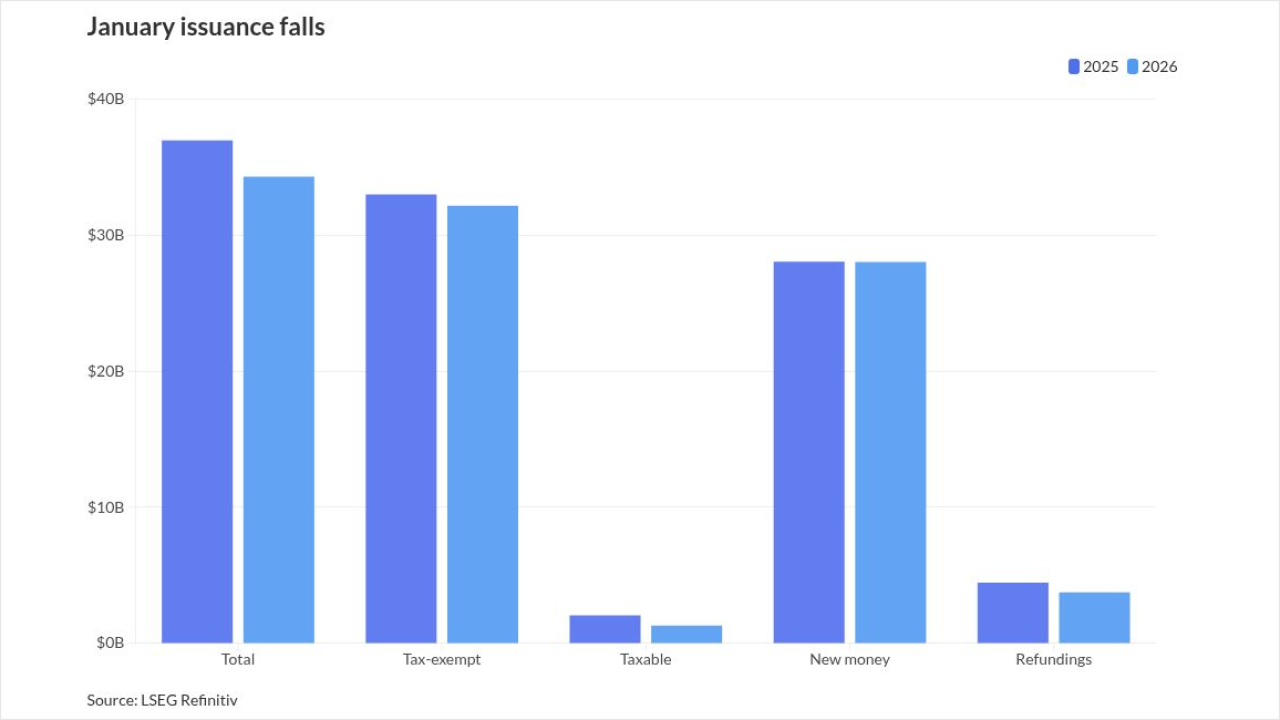WASHINGTON — Advance refundings would not be reinstated and the $10,000 cap on deductions for state and local taxes would become permanent under Tax Reform 2.0, the top tax-writer in the House said Thursday.

House Ways and Means Committee Chairman Kevin Brady, R-Texas, made the remarks to reporters when asked about a tax reform bill his committee expects to consider in the fall. This was his last media availability before the House begins a five-week August recess.
The framework for Tax Reform 2.0, as Brady has dubbed it, was released Tuesday and would make permanent the lower individual tax rates in last year’s Tax Cuts and Jobs Act that are scheduled to expire in 2025.
It also has provisions designed to encourage household savings, expand 529 education accounts, allow penalty-free withdrawals from retirement accounts to cover the costs associated with the birth of a child and provide additional write-offs for business startups.
“We don’t think we need to pay for permanent tax relief for families and small businesses,” Brady said, indicating House Republicans won’t attempt to make the overall tax bill revenue neutral. “On the retirement areas, I’ll predict that won’t be large. I think the savings from that will be pretty tailored to those policies, so I don’t expect that to be anything but a very modest ticket.”
But Brady does plan one pay-for that would make permanent the $10,000 cap on the federal deduction for state and local taxes, which is also scheduled to expire in 2025.
“We think out of fairness that cap ought to remain,” he said, claiming that half of the households that had itemized state and local deductions of more than $10,000 either owned homes worth more than $1 million or had incomes above that level.
Brady said the cap “covers the vast majority of Americans.”
The additional federal revenue from the cap was used to “create middle class tax cuts not just for Americans who itemize but for Americans who don’t as well,” he said. “It’s part of making the code fairer and simpler.”
Four high-income, high-tax states that are adversely affected by the new SALT cap filed a lawsuit on July 16 in the U.S. District Court for the Southern District of New York, arguing that the previously unlimited deduction has served as a valuable tool to prevent “double taxation.”
New York, New Jersey, Connecticut and Maryland said in their joint claim against the Trump administration that the deduction “is essential to prevent the federal tax power from interfering with the states' sovereign authority to make their own choices about whether and how much to invest in their own residents, businesses, infrastructure, and more.”
The lawsuit claims residents in their states will be required to pay more federal taxes.
But Brady offered a different take on federal tax reform, pointing to the increased revenues it is providing state governments.
“Here’s the good news,” he said. “High tax states like New Jersey, New York Connecticut and California are seeing a windfall [in] state revenue because of tax reform. Rather than pocket it in their state capitals they ought to be passing it on to their taxpayers.”
Brady also expressed satisfaction with the halt to advance refundings after 2017 that was part of the Tax Cuts and Jobs Act.
“I don’t anticipate reconsideration of that,” Brady said in response to a question from The Bond Buyer.
Brady said advance refundings were terminated “principally because we want to stop the gaming of local governments who in effect double dip on the tax exemption of those municipal bonds.”
“We think a 90-day period where they can overlap is a fair approach,” he said. “But we want to make sure taxpayers don’t get hit twice for underwriting the same project.”
He was referring to current refundings, in which outstanding bonds are redeemed within 90 days of when the refunding bonds are issued. In advance refundings, bonds were redeemed much later, typically when call dates were available.
Emily Brock, director of the federal liaison center for the Government Finance Officers Association, said Thursday that Brady’s Tax Reform 2.0 framework is far from final and noted that the committee is planning listening sessions to gather reactions.
“The listening sessions will be a great opportunity for us to work to find a solution that’s agreeable for many stakeholders — a process that was absent in 2017,” Brock said, adding that she’s not surprised to learn that Brady wants to make the SALT cap permanent.
“But now we may have the time to discuss the costly impact of doing so,” Brock said. “It's also an opening to discuss advance refundings as a way to improve the code so that the state and local issuer community also continues to be competitive, innovative and always better.”
Any tax legislation that passes the House this fall also would face an uphill battle in the Senate where 60 votes would be needed to prevent a filibuster. Republicans have only a 51-seat majority in that chamber.





